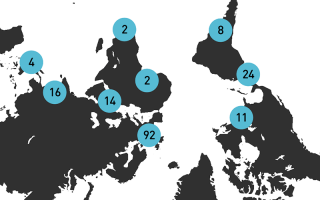2021/22 graduate Anaisabel Galindo discusses what it's like to study MSc Development Administration and Planning at UCL.
1.What initially sparked your interest in the DAP programme? What was your prior experience with development, if any, and what did you hope to achieve by participating in the course?
Initially, what motivated me to look at the DAP programme was the recognition of The Bartlett Development Planning Unit's leadership in building knowledge together with actors from different expertise and social areas. After graduating as an anthropologist from the Universidad del Valle de Guatemala, I wanted to continue cultivating my knowledge in the field and DAP was one of the programmes that offered that.
I had previously worked implementing programmes interventions for government entities, local NGOs, and UNICEF, but always with a focus on the Guatemalan context. So, DAP was the platform I needed to broaden my knowledge on why and how social programmes and projects are implemented in other areas of the world.
2. How or where did you first hear about the DAP programme?
When I applied for the Chevening scholarship, it was part of the programme selection exercise in the UK. Nobody told me about DAP, it was more of an online search on my own. However, it was, from the beginning, my first choice.
3. What were your expectations? (Were these expectations adjusted once here?)
My expectations were to be able to have classes that would allow me to put into practice the theoretical knowledge I had previously acquired, but in contexts outside Guatemala. However, these expectations could not be fully met as the DPU was still subject to mobilisation constraints because of the COVID-19 pandemic. What is worth noting is that there were classes in which I was able to carry out essays and academic exercises based on real cases and with the support of partners from Uganda, who came to London to share their valuable experiences and knowledge to understand first-hand the situation in their home country.
In addition, having professors and classmates from diverse cultural backgrounds enriched the academic experience. At times it was very challenging to live with and learn from other cultures, but it was a necessary culture shock to experience the development reality. After all, that was what I was looking for.
4. What was your favorite aspect or feature of the DAP course? What was your favourite module or subject?
My favourite course was the practical one, because I had the opportunity to work with colleagues from different parts of the world, to get to know their ideas, their ways of working and their experiences. In addition, I had the opportunity to see the interaction between the teachers and the partners and to learn about the dynamics of negotiation and partnership between them.
5. How has your career developed since completing the course? Where have you been working since graduation, and how did you get into that role? How has the course prepared you for your current career?
I am now working in the business development sector, which translates into the development of internal and external strategies for obtaining funding for development programmes.
After DAP taught me how and why development operates in a certain way, at the end of the program I have the need to understand not only where the money for social development comes from, but to learn how to get it .
6. Do you have any words of advice for current or prospective students?
Learn how to do strategic reading of documents and learn how to write essays. It will save you a lot of time.
 Close
Close


